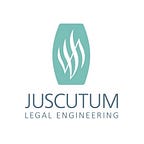The way a company increases its profits by means of compliance
The key challenge of compliance in Ukraine is monetization. It has already been actively carried out by companies that have realized that the ‘audit’ of processes increases revenues and significantly saves money. Energy companies have already experienced the effect!
Business organizational culture
Financial planning is an art. The pursuit of profit in the corporate environment should not be blind, because it may have negative consequences. The company bears losses if the employees generating those profits get dismissed or sabotage.
It is generally accepted to calculate the profitability in the final analysis. The revenue part is formed by the expected revenues, and the expenditure, in the classic version, is the cost of manufactured products, operating and administrative expenses. Boosting sales, increasing business capitalization, building a strategy — all this is based on quarterly reports and, as a rule, without going into ‘fine layers’ of the organization and its organizational culture.
A high-quality compliance culture becomes an invisible factor in increasing staff productivity, their dedication, loyalty to the company, reducing the number of internal conflicts.
Compliance in numbers
Meanwhile, despite mental rejection, domestic companies try to integrate compliance policy into business processes.
Some people hold it at the formal level, some got interested, but later slow down, and some fully implement the anti-corruption program, with tone at the top.
Here’s how it looks in practice:
“The customer of the year who saved more money” — this title, for example, was received by the Energoatom National Nuclear Energy Generating Company State Enterprise in 2017 following the results of public procurement activities after the identification and assessment of corruption risks.
Energoatom received another recognition from the European Bank for reconstruction and development. “Substantial cost savings” during the work with power-generation units were noted. All work was carried out under the implemented anti-corruption program.
“The implementation of the decision to fight corruption in the company was not easy. There were rejection and conflicts. Systemic work has broken the ice and over time obvious results have been achieved. Recently the Working Commission has completed the third stage of corruption risks identification in the field of public procurement and personnel management. For the most effective work, independent experts on anti-corruption legislation were involved in the project,” as commented Oleg Polishchuk, Director of the Energoatom’s Center for Prevention and Combating Corruption.
If we go deeper into the concept of anti-corruption compliance, we will discover obvious things. Thus, savings can be achieved through:
- elimination of conflict of interest phenomenon in the company, which significantly affects the objectivity of decisions and takes into account private interest;
- regulated selection of personnel, without the influence of company officials on the personnel selection procedure (otherwise, the incompetence of personnel increases, whose actions directly or indirectly lead to losses);
- proper organization and conduct of public procurement (non-compliance leads to a shortage or low quality of products, overpayment, etc.);
- proper management of resources (in the presence of such a risk, there is a deliberate overestimation of the goods and services cost, the use of resources by an official for his/her own purposes, etc.).
Legal component
Below is an excerpt from the court order. It seized accounts of the enterprise. Investigators often use such a preventive measure to ensure criminal proceedings, it is explicitly stated by law.
“… the investigator points out that the funds in the accounts of the company are an instrument of committing a criminal offense, they were acquired as a result of a criminal offense, and therefore in order to ensure the activities of criminal law in relation to the legal entity of ABV LLC in the form of confiscation of property, there are grounds for seizure of funds in the accounts of these companies…”.
Specific feature of the document is that it was issued in criminal proceedings against a legal entity. It really was. Formerly law enforcement officers used the property and accounts of the company as an additional measure of influence, now the law allows to bring to justice a legal entity. But due to peculiarities of the system of law, which is used in the country (the principle of personal responsibility), the definition ‘criminal law measures’ has been applied. You may find details in Article 963 of the Criminal Code of Ukraine.
In fact, the requirements of the Article can be applied only if the following conditions are met:
- commission of crimes under part 1 of Article 96–3 of the Criminal Code of Ukraine;
- the person who committed the crime was authorized and acted on behalf of the legal entity and not on his/her own behalf;
- the person acted for the benefit of the company, and not only for personal advantage.
For Ukrainian business, as well as for the law enforcement system, this phenomenon is uncommon, and the number of proceedings against legal entities is insignificant. However, the risk that directly affects the enterprise functioning should not be ignored.
Viktor Shulga, the lawyer of the Security Business Practice
